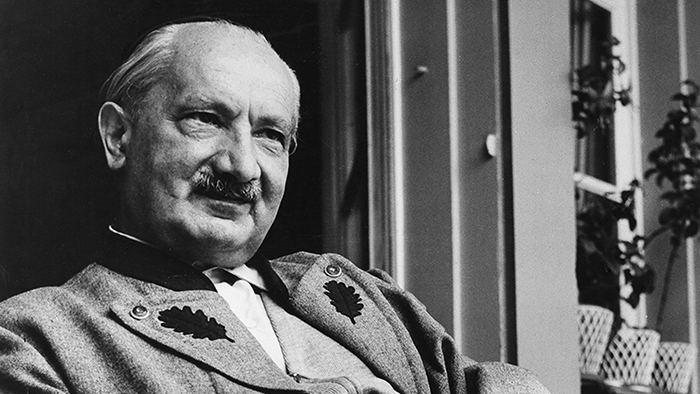Corrado Gnerre
I have not studied philosophy, so certain names are completely unknown to me. Sometimes my pastor (a man of great culture) quotes and praises the philosopher Heidegger. Then I hear this same philosopher named by my son who has completed the last year of high school and has a passion for philosophy, but he calls him a philosopher who is anything but Christian. But who is he? If my parish priest mentioned him numerous times he must not be so …
Dear friend, you are absolutely right: Heidegger has become a sort of philosophical and theological “parsley”, he is used a little everywhere. The problem, however, is that as long as those who follow certain prevailing fashions use it, it is not surprising … but if it is used in theology (for example a parish priest), there is trouble.
You ask me to make a synthesis of Heideggerian thought, highlighting its dangers. You propose an arduous undertaking with the little space I have available, but I will do my best.
For Heidegger, being never manifests itself directly, but always as the being of an entity, that is, the being of a single man, a single dog, a single table, etc. He is no longer knowable through God (as the good Christian philosophy affirms), but through himself, moreover through his singularity and what happens to him. An “anthropological” turning point that unfortunately will make its own, with consequences that we still suffer today, a widespread contemporary theology, for example when it is said that in the moral judgment on human behavior one must not take into account a universal moral law as much as the individual circumstances that define the individual existence; so at the end everything is justified: sin no longer exists objectively, but what man perceives subjectively as such. An important clarification: criticizing Heidegger does not mean to be convinced that man can be alienated from his historical singularity, but to affirm that this singularity cannot dissolve the essence of man.
Dear …, in reality there are also some interesting statements in Heidegger’s philosophy, especially those about death and the precariousness of human existence. But – as I said – Heidegger “leaks” just when he faces the metaphysical discourse. If being is only in the singularity, then being is always changing, ineffable and fundamentally unknowable; and therefore not only becomes everything and the opposite of everything, but it even becomes “nothing”.
Be careful though. Dear …, “nothing” does not mean nonexistence or absence. For “Heideggerian nihilism”, nothing is the shadow of being. An essential feature of being would be that of showing itself and veiling itself. According to Heidegger, being returns to man in his essence only when he is no longer forced into the logical-rational categories of Western metaphysics that define (and circumscribe) him as: God, subject, reason, science, progress, etc. The being then appears as a sacred land, celebrated by poets.
What can I say, dear …? That in order not to recognize the limit of amazement, Heidegger goes south. As I have already said, he says beautiful things about the limited nature of man, but his affirmations about being, lead him to the distortion of the limit. To say that being is not substance but evanescence, to say that being can be grasped not through the philosophical method but through the poetic one, means to conceive being not as a reality that brings man back to the truth, but as a possibility of emancipating man from any bond. In short, Heidegger believes he is freeing man from the logical-rational dominion of being; but not only does it not free it, it makes it a slave to an unknowability of the real that is always and in any case transformed into “reals” built to one’s liking and which mercilessly dissolve it. A naive and dangerous contradiction: Heidegger thinks that the traditional conception of “being” determined the development of the technique that would then have turned against man … and he does not realize that it is just the opposite: canceling any definitive ontological value, only the power of what is able to impose itself remains, therefore also of the technique that becomes mercilessly “technocracy”.
(From La buona battaglia. Apologetica cattolica in domande e risposte, 2019©Chorabooks. Translated by Aurelio Porfiri. Used with permission of the publisher. All rights reserved)


 Follow
Follow


